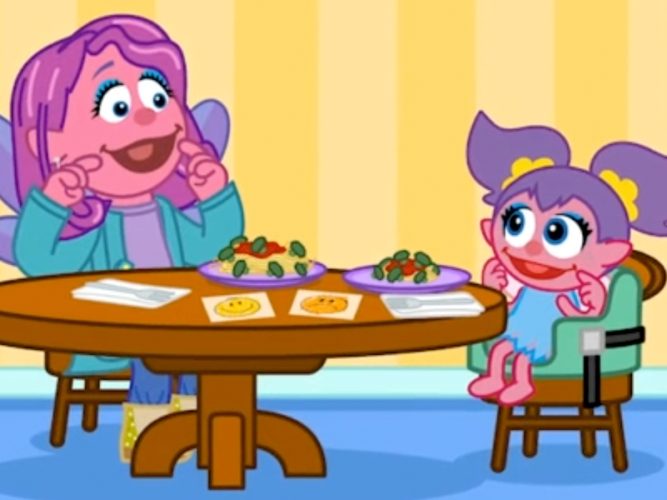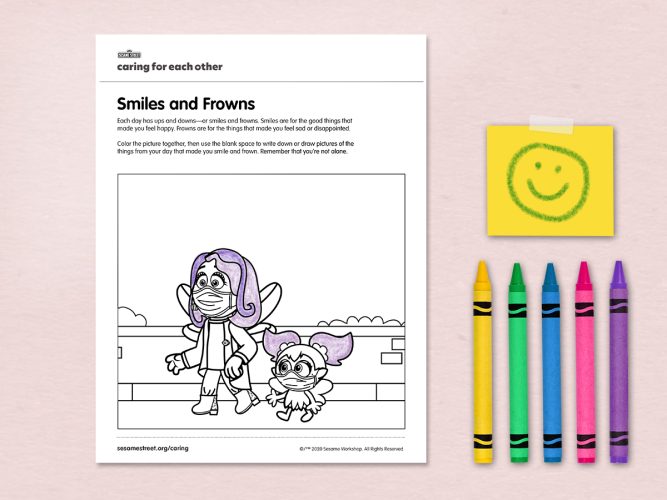
Staying Positive
Focusing on the positive helps make negative moments seem more manageable.
Sunny Days
Even in difficult times—perhaps especially in difficult times—it is always possible to look at things in a more positive way. Half a glass of water? You can say the glass is half empty . . . or you can look at it as half full. Clouds in the sky? You can call the day partly cloudy . . . or partly sunny. Encouraging children to view things through a positive lens will give them the skills they need to deal with challenges, as well as the resilience to sweep the clouds away.
These resources will . . .
- Remind you to name and validate your child’s big feelings;
- reframe negative experiences in the most positive light possible, setting your child up to face challenges with a hopeful attitude; and
- suggest easy activity ideas that will let your child practice positivity and set him or her up to succeed, no matter the obstacles.
Not every day is going to go smoothly, especially these days, when things are quite different and, let’s face it, strange. Even days that are good are bound to have some bumps. But whatever comes, your child will be better equipped to face challenges by maintaining a positive attitude. Positivity will not only help in difficult moments, it will also add to the enjoyment of all the good moments.
A Flood of Feelings
One of the most important skills a child needs to learn is how to handle big feelings without getting overwhelmed. Next time a rough day comes along, here are some strategies that might help:
- Remind your child: “Feelings come and go. Whatever you’re feeling now won’t last forever. You will feel better again.” Though it’s tempting, don’t rush the feelings away. It’s okay for a child to experience feelings intensely, even negative ones.
- Your child may sometimes feel different emotions all at once. Encourage your child to identify and name those feelings. Help provide the vocabulary, if needed: mad, frustrated, lonely, etc. Using words rather than acting out is the behavior you are trying to promote.
- Listen without judgement. “I can see that you’re frustrated,” for instance, is more helpful than saying, “Don’t cry” or than coming up with an immediate fix.
I’m Positive!
The very best way to nurture a positive outlook in your child is to have one yourself. You are the best role model. If your child sees you rolling with the punches and looking for the good in every situation, she will soon learn to do the same. That doesn’t mean you have to pretend that everything is always perfect; it just means that you deal with things in the most hopeful way possible. You–and your child–can look at obstacles and challenges as something you will surely be able to overcome.
- When things go wrong, remind your child to take a moment to breathe deeply–a few long, slow breaths. Then prompt him to think positive thoughts. It helps if he already has a few phrases at the ready, so brainstorm together ahead of time: “I’m going to figure this out.” “I am strong and smart and I’m sure I can do this.” “Tomorrow will be better.”
- With your child, decide on a new, more positive take on the day: “I tried my best; I’ll do better next time.” Or, “I learned that . . . , so the next time I get a chance, I’ll try . . . ” Or even just, “Wow! I made it through this day, and I’m still standing!” Then celebrate with something concrete that brings your child pleasure–a snuggle, a favorite book, a cup of hot cocoa, whatever is most meaningful.
- Take time to enjoy positive experiences together! Make sure your child knows how proud you are of his or her efforts. And especially, that you are always there to listen and to help.
Accentuate the Positive
Strengthening your positive side can be fun! Try some of these activities with your family:
- Play the Bad/Not Bad game. It’s easy to find a positive spin on good things, but more fun to find good things in unexpected places! Challenge your child to do just that. For example: It’s raining. That helps the flowers grow. These bananas are rotten. Rotten bananas make the best banana bread.
- At the dinner table, ask questions that encourage everyone to look for the good: What was the best part of your day? Or, What’s one thing you’re looking forward to tomorrow?
- Sing a song together! There’s nothing like music for lifting everyone’s spirits.
- Set concrete goals. What does your child wish to accomplish? What are the steps to achieve it?
- Gratitude is an important part of being positive. Provide a journal for your child to record Aah and Awe moments. It can be used for writing down or drawing things each day that inspire awe, like a beautiful sunset or a kind teacher, or the smell of bread baking. Aah!
- Finally, find good some role models for your child—both people you know, and those in public life—who persevere and stay positive, even when faced with difficulties. Point out the qualities that make them successful in seeing the glass half full. And remember that helping others is often a great way to feel good about things.


